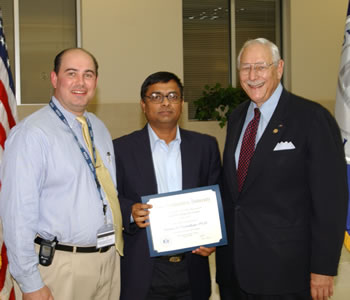Design and Test of Prediction Markets to Aid IS Project Planning: A Field Study
Grant Winners
- Easwar Nyshadham, Ph.D. – Graduate School of Computer and Information Sciences
- Utako Tanigawa, Ph.D. – Carlson Group
Dean
- Edward Lieblein – Graduate School of Computer and Information Sciences
Abstract

It is well known that IS projects fail to achieve the desired objectives with alarming regularity and early prediction of potential failures can have a considerable economic impact of IS projects. Literature suggests that the difficulty in integrating information available among multiple stakeholders in an IS project (i.e., from business, technical and user domains) is probably the most significant reason for such failures. In this research, we create electronic markets, called prediction markets (a.k.a. information markets or event futures in research), to efficiently aggregate information from multiple stakeholders.
Considerable theoretical and empirical support exists for the superior performance of well-designed markets to forecast future outcomes. In our application, various stakeholders in the IS project decision will serve as subjects and participate in a prediction market and purchase contracts on various parameters of interest (e.g., probability of achieving a milestone, variance in budget figures etc.) The equilibrium prices for such contracts effectively aggregate the information available with diverse groups of stakeholders and provide a basis for project planning.
The two main goals of this research are: a) test the efficacy of prediction markets in a field setting for IS project management, and, b) develop general market design principles for conducting prediction markets for IS decisions. We plan to use a field study approach. The co-PI in this research is currently working on a large, multi-year IS project which involves enterprise system design for a fortune 500 client. The PI is well-versed with the software design issues in building such applications and the economic theory behind prediction markets.